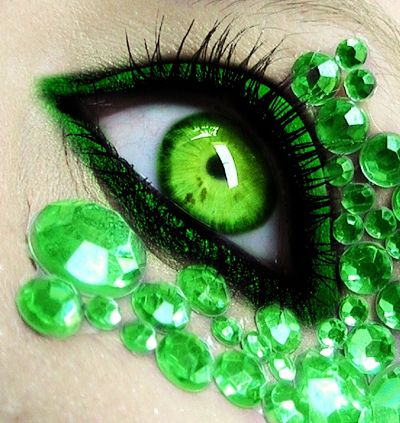 Anger as an emotion has had a great deal of bad press through the years. It’s one of those emotions that people shy away from and never really use to describe anyone in a positive light. Anger is, however, just another emotion. It can be very useful to us in certain circumstances. We all know and have had very memorable experiences of the “fight or flight” response that kicks in when we are under threat. Anger in those circumstances can really save our bacon. Anger also gives us the energy to change things when we are just not happy. We might need that rush of adrenaline and that “sod this, I’m going to sort it out!” kick up the backside to pull us out of unproductive situations. Why then if anger is so good, do we need anger management methods?
Anger as an emotion has had a great deal of bad press through the years. It’s one of those emotions that people shy away from and never really use to describe anyone in a positive light. Anger is, however, just another emotion. It can be very useful to us in certain circumstances. We all know and have had very memorable experiences of the “fight or flight” response that kicks in when we are under threat. Anger in those circumstances can really save our bacon. Anger also gives us the energy to change things when we are just not happy. We might need that rush of adrenaline and that “sod this, I’m going to sort it out!” kick up the backside to pull us out of unproductive situations. Why then if anger is so good, do we need anger management methods?
Like all things, when you have too much of something it can make you sick. Too much anger can……
- destroy relationships
- cause us to be judgmental and intolerant of others
- get us into conflict, verbal and physical, with others
- react in an out of proportion manner to situations
- compromise our immune system which leads to us getting poorly more often and for longer
- give us a banging headache
- Result in us withdrawing from others and maybe physically harming ourselves
Having taught in schools for many years I’ve seen a lot of angry boys. And I mean a lot! I have also taught girls who have incredible difficulty managing their anger and can out anger any lad with ease. Anger is not by any means limited to males but there is no doubt in my mind that it is one of the safest emotions to express as a male around other people. I was almost tempted to write “around other males” in the last sentence but unfortunately females are complicitous in the promotion of anger in males too. My experience working with eleven to sixteen year olds is that an angry boy is seen as acceptable and kind of cool in a scary way and an angry girl is seen as slightly mad!
This gives a first clue as to where all of this anger comes from and brings us on to the Transactional Analysis concept of racket feelings.
Ian Stewart and Vann Joines book “TA Today” has a very clear definition of what a racket feeling is, they define it as;
“A familiar emotion, learned and encouraged in childhood, experienced in many different stress situations, and maladaptive as an adult means of problem solving”. (page209)
So how do certain emotions get encouraged in childhood? Let’s take little Johnny (could be little Jane too). When Johnny falls over at the age of five he cries. His mum tells him to pick himself up and carry on paying little attention. When he feels scared of going to school for the first time he gets told to “pull himself together” and not be so silly. When he plays happily with his brother he is largely ignored by his parents. When he kicks off, screams and shouts and starts throwing his toys around the room he suddenly gets a lot of attention. Multiply this by the 1825 days little Johnny has had these indirect messages from his parents and I’m sure you begin to see my point. Angry = attention.
With a racket feeling in place, it becomes difficult for us to access the authentic feeling we are really having. Back to Johnny (bless him). As an adult when Johnny feels scared he is going to be made redundant from his job he can’t do scared very well because he has not had much practise. It’s much easier to feel angry, so without even thinking about it that’s where he goes emotionally. Result = he gives his boss a mouthful and gets the sack.
When he feels sad that his relationship has broken down he’s not sure how to do sad either so he easily switches to anger. Result = he feels furious at the situation and punches a wall, breaking his hand in the process.
But how do we know whether a feeling is a racket or genuine? As I said at the beginning of my post, anger can be useful and is just as valid as any other emotion, so when does Johnny know when his anger is a racket and when it’s authentic? Here’s some ways you can tell:
- Racket feelings come from a not OK place
- Racket feelings don’t solve the problem
- Racket feelings come from the Child ego state
- Racket feelings involve a discount
“All very interesting,” I hear you say, “but how do I sort out my anger issues?” You can seek out a properly trained counsellor who can guide and support you with your anger issues. I see clients with anger issues regularly and use a step by step approach to helping with anger. But you don’t have to go to a counsellor – Read my self help plan here and get your life back.
If you are interested in coming on my anger management course please click this link to read more about it or phone me on 07966 390857.
 If you struggle with stress, anxiety or depression getting grounded is a great skill to learn. This is a technique I teach to my clients if I think it would be useful to them. It’s a way of slowing your mind and bringing it back from the regrets of the past or the uncertainty of the future. The here and now is all we have. The past is history, the future fantasy. So next time your mind is racing follow these instructions:
If you struggle with stress, anxiety or depression getting grounded is a great skill to learn. This is a technique I teach to my clients if I think it would be useful to them. It’s a way of slowing your mind and bringing it back from the regrets of the past or the uncertainty of the future. The here and now is all we have. The past is history, the future fantasy. So next time your mind is racing follow these instructions:
